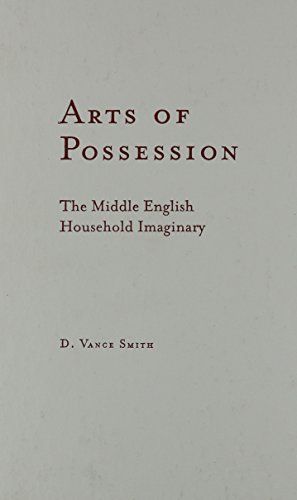
Arts of Possession The Middle English Household Imaginary
An innovative work of both economic anthropology and literary history, Arts of Possession draws on philosophical, theoretical, literary, historical, and archival sources and insights to situate the household at the center of the social and cultural imagination of fourteenth-century England. D. Vance Smith argues that in a period commonly represented as precapitalist there actually existed a sophisticated economic discourse -- and that discourse underlies common forms of representation and the writing of literary texts. His work provides a new historiography of capital and of the development of the relation between economic sophistication and cultural practices. Smith reads well-known and less-appreciated works -- such as Winner and Waster, Sir Launfal, The Canterbury Tales, and Piers Plowman -- for what they can tell us about the surpluses and economies that drew the medieval imagination, and about the complex ethics of possession at the heart of the fourteenth-century household. In bringing this to light, Smith's book itself becomes an eloquent meditation on the poetics and ethics of possession.